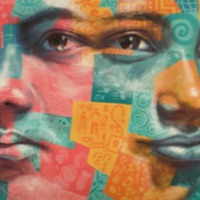
The root cause of trafficking is the political situation. In December 2017 the Myanmar army shelled the camp. School was closed because of the shelling.
Because of politics there is no peace in our country. People cannot do their own development. When I was young my family was rich, and we didn’t have to worry. But one day the Myanmar army came, and we lost everything. My parents really wanted us to be educated but we didn’t have the chance because of the conflict…It’s the same now—we want to educate our children, but we can’t. I hope for a democratic government that can develop the country.
[…]
He [my husband] asked me, “How much money do you have?” I said, “Don’t ask me how much money, ask me what happened to me in China.” He asked, and I told him about my situation. My husband was crying. I was crying. Then my husband suggested, “Don’t tell this story to anyone else because people might look down on you because you were trafficked to China.” And that’s why until today I didn’t tell anyone.
[…]
There was no physical damage to my body. But a man I didn’t accept had sex with me and that always remains with me and it’s really hard and it always has an effect on my life.
[Khawng Shawng sought care from an organisation that visits her IDP camp]
But whenever I went there they ask me what kind of illness I have, so I didn’t go back.
Narrative provided by Human Rights Watch in their report “Give Us a Baby and We’ll Let You Go”: Trafficking of Kachin “Brides” from Myanmar to China









